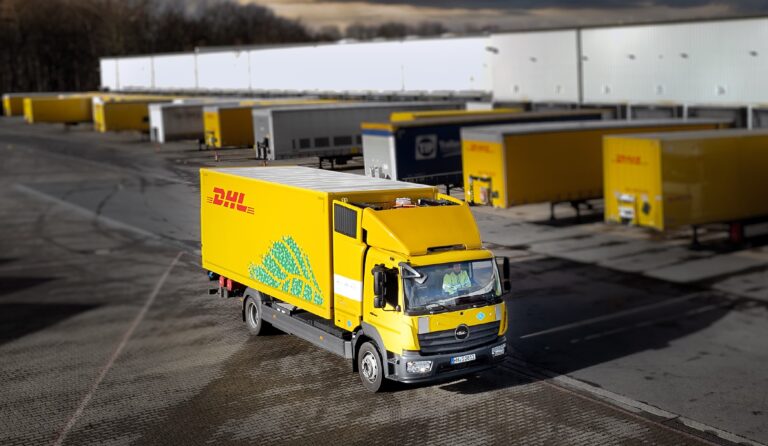DHL Freight is trialling a hydrogen truck from special-purpose commercial vehicle maker Paul Nutzfahrzeuge in a one-year pilot for distribution and line hauls in Cologne, Germany.
This is the second hydrogen truck for DHL Group in Germany, with another vehicle operating for the Post & Parcel Germany division at the Cologne West facility. The company and its divisions are testing and implementing various sustainable drive solutions as part of its sustainability strategy and the interim target of reducing emissions to less than 29 million tons by 2030.
“In the realm of road transport, where no single alternative drive technology has yet emerged as the clear winner, it is crucial for us to maintain a technology-neutral approach and continue testing various sustainable solutions,” said Dr. Thomas Vogel, CEO of DACH, UK & IE DHL Freight.
“This includes not only battery electric trucks but also hydrogen vehicles, which excel in longer distances due to their impressive range and quick refueling capabilities. Our ultimate goal is to determine the optimal combination of technologies and drive systems to achieve our net-zero emissions logistics target by 2050.”
The two 15.6-ton trucks, with a range of approximately 400km with a trailer and 600km without a trailer, were manufactured by Paul Nutzfahrzeuge on behalf of Shell in Vilshofen, Southern Germany. The basis for the first series-produced medium-duty fuel cell truck in Germany is provided by a Mercedes-Benz Atego.
The vehicles are operated by DHL Freight and Post & Parcel Germany through the innovative Shell Hydrogen Pay-Per-Use platform model. In addition to the vehicle and hydrogen refueling infrastructure, Shell’s offering also covers all necessary services and support during the period of use.
For DHL Freight, there are already around 150 vehicles in Germany that are either carbon emission-free or have significantly reduced greenhouse gas emissions. These include battery-electric vehicles for local transportation and bio-CNG and bio-LNG vehicles for long-haul transportation. Additional pilot projects involving battery-electric vehicles for long-haul transportation or hydrogen-powered tractor-trailers will be added in 2024.


